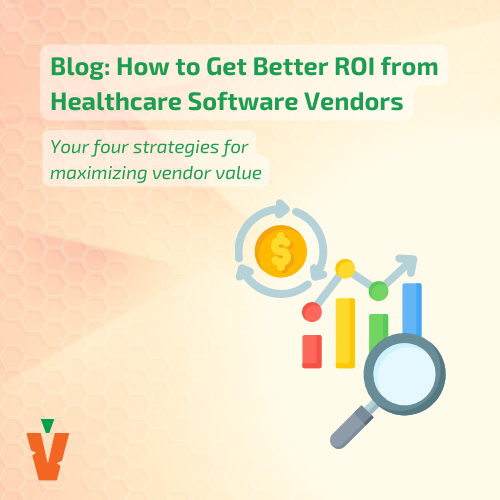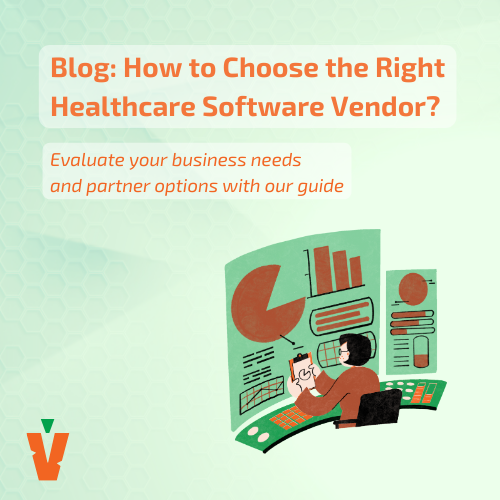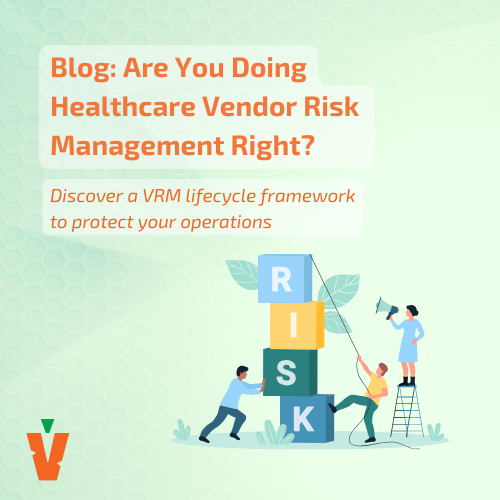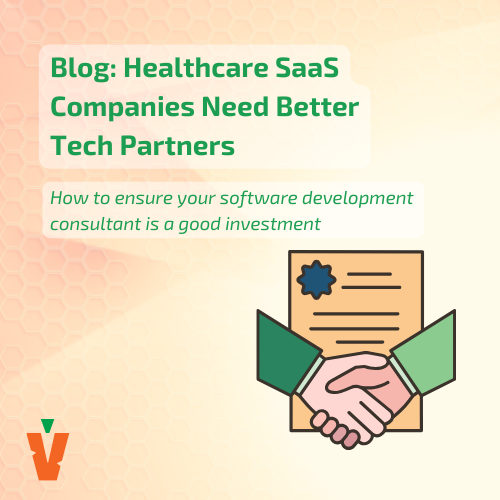Would you bet the success of your latest project on the quality of your healthcare software vendor? No matter your response, that’s exactly what happens when you hire a third party to handle parts of your project. So, why not make sure you’re getting as much as possible from the relationship?
Companies often get less than ideal results from their software vendors. They struggle with miscommunication, misaligned goals, and inadequate performance from the developers they hire. It’s time to stop letting this happen, address these issues, enhance the relationship, and boost your bottom line.
Today, we explore ways to make the most out of your vendors. We start with ways to fix costly issues and end with strategies to turn vendor partnerships into mutually beneficial relationships.
The Value and Struggle of Vendor Relationships
As leaders of healthcare software development companies, we can’t operate well without vendors. They provide specialized tech and skills lacking in our in-house teams — from advanced analytics tools to integrations and cybersecurity measures, the experts in which we can't afford to bring in as new hires every time a project requires it. In a nutshell, vendors make us more capable of delivering quality tech on time and within budget.
However, we must admit that healthcare software vendors also complicate your operations. The most common problems we noticed are misaligned objectives, communication barriers, and poor performance and reliability. Cost projections, timeliness, and the quality of your healthcare SaaS suffer from these factors. So, to make the most of your software vendor relationship, you must first address its issues.
Quick Wins & Long-Term Tips
Quick wins are the immediate actions you can take to improve your relationship with a healthcare software vendor. These ideas make sense but can slip through the cracks as deadlines draw nearer, so here’s a refresher:
- Clarify expectations. Both parties should understand their roles in the partnership from the get-go. So, set success criteria in your SLA and align on goals, deliverables, and timelines.
- Set up regular check-ins. These meetings allow you to adjust expectations as needed. They work wonders on software vendors who seem to be slacking, as it keeps them accountable week after week.
- Document everything. From the initial agreement to progress reports, having everything in writing is the best thing you can do in a vendor relationship. It lets you track progress and gives you leverage if there’s a dispute.
- Don’t stew in dissatisfaction. If a vendor is underperforming, address it immediately. Provide specific examples of what went wrong — a missed deadline, a missing feature — and work to find solutions so it doesn't happen again.
When it comes to the long-term vision, here’s what you can do to make the collaboration with your healthcare tech vendor fruitful and stress-free:
- Understand your expectations. If vendor after vendor ends up more trouble than it’s worth, you should ask yourself — what exactly do you want from them? Evaluate the needs and turn them into a set of KPIs to judge your vendors against. Do your due diligence when it comes to vendor risk management to ensure the failures aren't your fault.
- Review the relationship. You’d be surprised how often companies spend months paying for no results just because a relationship with a software vendor isn’t causing drama. Reviews shouldn’t be firefights but regular appointments where you evaluate vendor performance.
- Leverage vendor expertise. You hired this company for its specific knowledge, so why not use the skills of its team? Ask for recommendations about the best practices, and have them suggest ways you can improve your working relationship. The project likely isn’t their first rodeo, and two brains are better than one.
These fixes ensure your healthcare software development company doesn’t suffer from a bad vendor relationship. Now, let’s see how you can maximize the value of a healthy partnership.
4 Strategies for Maximizing Vendor Value
Take these non-traditional strategies to get more value from your relationship with a healthcare software vendor.
1. Project Kick-Off Workshops
Launch every project with a kickoff workshop. This is where you and your vendor align on project goals, timelines, and deliverables, as well as brainstorm the optimal tech solutions for the business problem. For example, if developing a new administrative app, use this meeting to define the system’s core features, user roles, and integration points. From what we've seen, this approach is much better than laying pre-defined requirements before a vendor who doesn't understand your team, products, or methodologies.
A kickoff workshop clears up confusion and sets the stage for smooth execution. It also ensures your healthcare software vendor is involved early, avoiding the biggest mistake we see companies make — calling for help when they’re already knee-deep in debt and missed deadlines.
2. Collaborative Work
From creating over 60 projects in healthcare tech, we know that companies often leave vendors to their own devices for too long. Weekly stand-up meetings are a much better idea, as they let you discuss progress, roadblocks, and next steps, staying up to date with development. At Vitamin, we send weekly executive reports to our clients to keep them in the loop and allow them to correct us immediately if we get off-track.
When hiring a vendor, consider this approach so you’d be more flexible and able to adapt to challenges as a company. Even with the best contract, their work will be subjects to at least some feedback — it’s better to provide it ASAP than two weeks before launch day.
3. Vendor Incentives
Struggling with unmotivated vendors or those seeking to extend their employment as much as possible because you pay them by the hour? You could reverse this trend by creating an incentive program that rewards them for meeting performance targets. You'd be surprised but it's almost guaranteed you'll end up paying less thanks to an early delivery bonus.
Especially with smaller companies, incentives can drive vendors to go above and beyond. Your partner becomes more invested in your success, which is at the core of good collaboration.
Define metrics for your incentive system and analyze them weekly or monthly. As a bonus, this means you’re reviewing their performance regularly, so nothing goes unnoticed.
4. Knowledge Exchange Programs
Set up programs to share knowledge between your team and the vendor. For example, if integrating a new RCM system, the vendors may discuss its configuration while your team explains how it needs to align with existing billing processes.
Knowledge exchange supports both parties. It helps vendors grasp your needs while your devs develop new knowledge and skill sets. It sets the foundation for a partnership where the teams care about each other’s success and grow as experts, which will be very beneficial in the long run.
Putting It Together & Key Takeaways
Healthcare software development companies must improve at aligning vendor capabilities with their business needs. Pick vendors who meet immediate project requirements and understand your strategic goals. This reduces time-to-market and enhances software quality.
Use this checklist to make the most out of your relationship with your healthcare software vendor:
- Define roles and success criteria clearly in your SLA.
- Schedule weekly or bi-weekly meetings to stay aligned.
- Keep written records of all agreements and progress.
- Resolve performance problems immediately with specific feedback.
- Establish clear KPIs to measure vendor performance.
- Consider our advanced strategies to build a meaningful collaboration with your healthcare tech vendor.
Vitamin Software Is Your Trusted Healthcare Software Partner
At Vitamin Software, we guarantee viability and cost efficiency in every project we undertake. Our Sanity Check ensures your healthcare software initiatives are feasible and aligned with your goals and budget constraints. Our process provides a clear picture of what’s realistic and achievable before we write a line of code.
We work closely with your team to optimize resources and streamline processes. By partnering with us, you also access our expertise in SOC2, HIPAA, Epic, FHIR, and AWS.
Schedule a consultation with us today to achieve your goals while staying on time and within budget.




